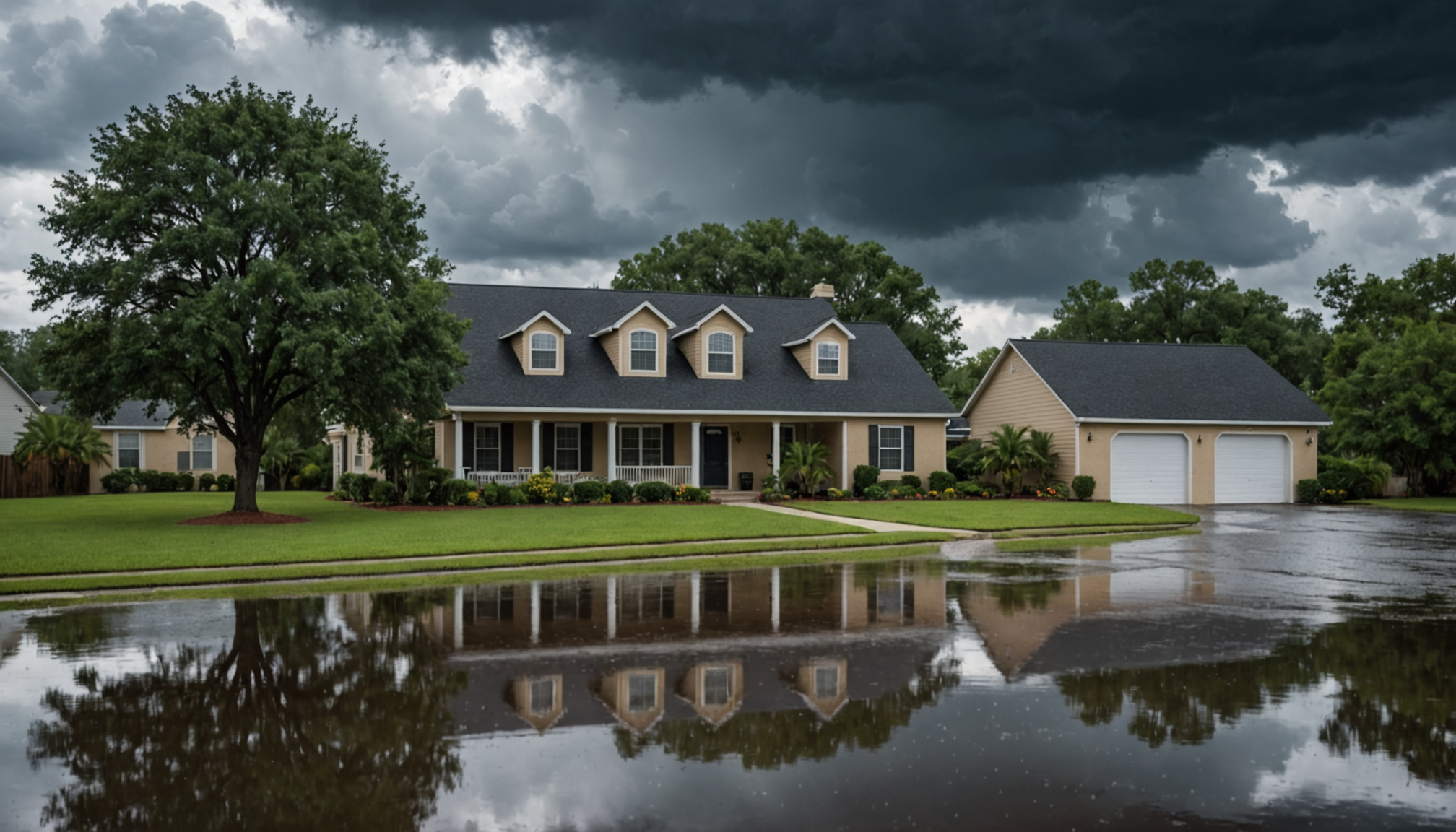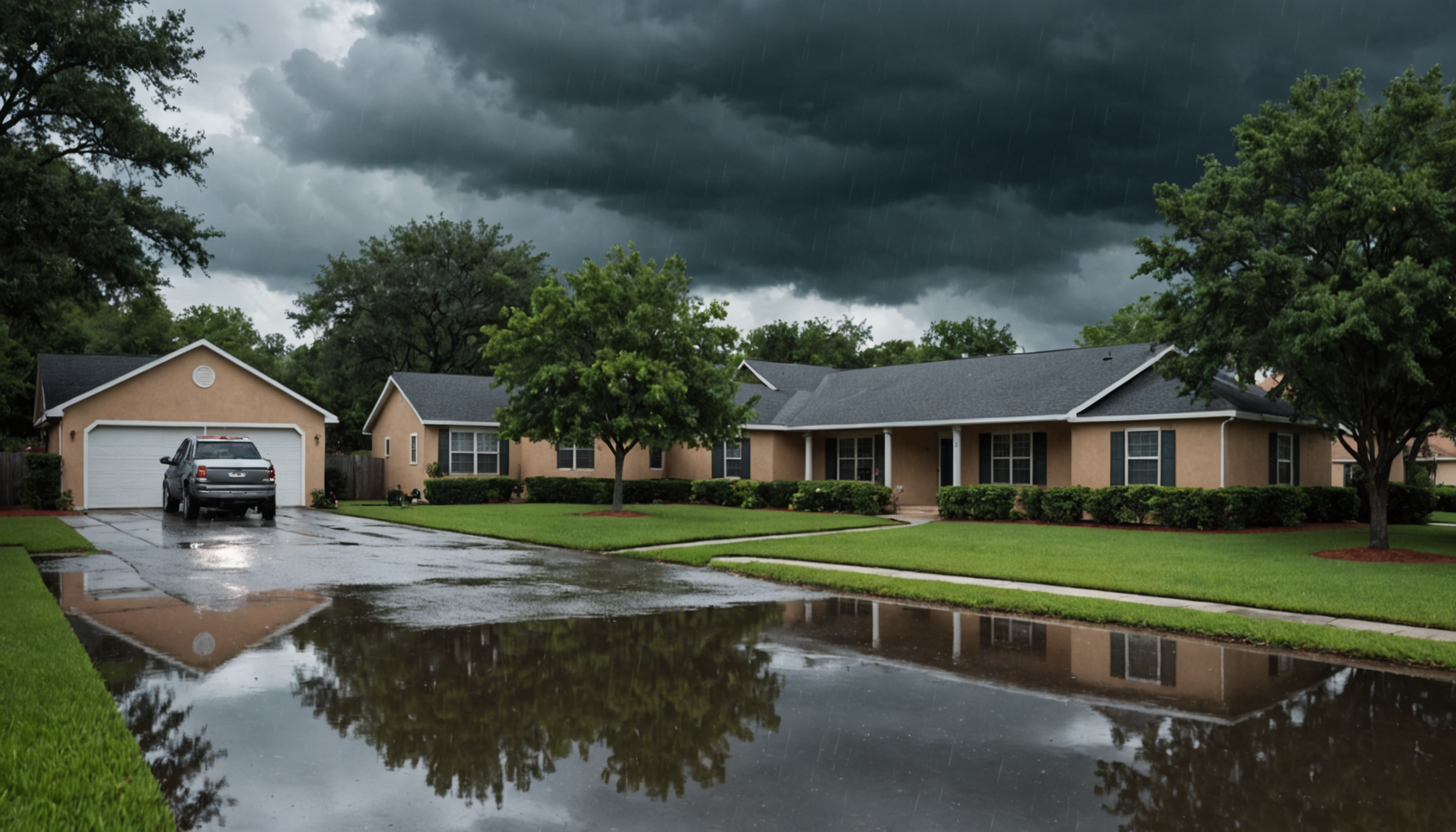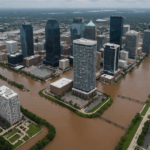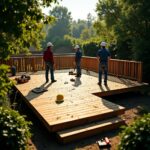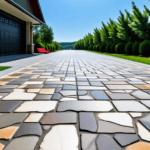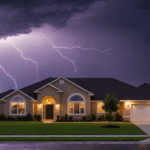Orlando’s unique combination of heavy rainfall, averaging 53.2 inches annually according to the National Weather Service, and predominantly clay-based soils creates significant drainage challenges for homeowners. The city’s frequent afternoon thunderstorms, particularly during the summer months, can dump several inches of rain in just hours, overwhelming residential drainage systems.
According to local soil surveys conducted by the University of Florida’s IFAS Extension, nearly 70% of Orlando properties experience some form of drainage issues. The most prevalent problems include:
- Standing water in yards that persists for more than 24 hours after rainfall
- Water pooling against house foundations, potentially causing structural damage
- Erosion along property boundaries and landscaped areas
- Mosquito breeding grounds in stagnant water
- Dying grass and plants due to oversaturation
The Florida Department of Environmental Protection reports that improper drainage can lead to foundation damage costing homeowners an average of $7,500 to repair. Additionally, Central Florida drainage experts note that water accumulation near structures can increase humidity levels inside homes by up to 20%, potentially leading to mold growth and air quality issues.
A particularly challenging issue in Orlando’s older neighborhoods is the outdated drainage infrastructure. Many homes built before 1990 lack adequate grading and proper drainage systems to handle today’s increasingly intense rainfall patterns. Climate data from the National Oceanic and Atmospheric Administration (NOAA) shows that Orlando has experienced a 12% increase in heavy rainfall events over the past three decades, making existing drainage problems even more severe.
The city’s high water table, typically just 6-8 feet below ground level, further complicates drainage solutions. This natural characteristic limits the effectiveness of traditional French drain systems and requires carefully planned alternatives that work with, rather than against, local geological conditions. Professional contractors report that approximately 35% of Orlando homes require some form of specialized drainage modification to address these unique regional challenges.
Yard drainage system options
When tackling drainage challenges in Orlando’s climate, homeowners have several effective options to manage excess water. French drains remain one of the most versatile solutions, consisting of a perforated pipe surrounded by gravel that redirects water away from problem areas. These systems can be strategically placed around the property’s perimeter or in areas where water tends to collect.
Surface channel drains offer another reliable option, particularly effective in Orlando’s clay-rich soil. These linear drainage systems can be installed flush with the ground surface, collecting and directing water to appropriate discharge points. For properties with significant slope issues, terracing combined with catch basins provides a comprehensive solution that not only manages water flow but also adds aesthetic value to the landscape.
Rain gardens represent an increasingly popular eco-friendly approach, utilizing native Florida plants that thrive in wet conditions. These specially designed depressions can absorb up to 30% more water than standard lawn areas while providing valuable habitat for local wildlife. Dry creek beds offer both functional drainage and decorative appeal, channeling water away from structures during heavy rains while serving as attractive landscape features during dry periods.
For properties with severe drainage issues, subsurface drainage matrices might be necessary. These systems involve a network of interconnected pipes installed beneath the soil surface, typically at depths of 18-24 inches, working in conjunction with surface solutions to provide comprehensive water management.
- French drains can effectively manage water flow for up to 20 years with proper maintenance
- Surface channel drains should be sized to handle Orlando’s peak rainfall intensity of 2-3 inches per hour
- Rain gardens typically need 6-8 inches of depression depth for optimal performance
- Professional installation of comprehensive drainage systems averages $2,500-$5,000 depending on property size
Driveway drainage solutions
A well-designed driveway drainage system is crucial for Orlando properties, especially given the region’s intense rainfall patterns. Trench drains installed across driveway entrances effectively capture water before it can flow into garages or carports. These linear channels, covered with sturdy metal grates, can handle heavy vehicle traffic while collecting substantial water volume during storms.
For sloped driveways, implementing a combination of channel drains and strategic grading helps prevent water from pooling at the base. Installing these drains at both the top and bottom of the incline provides optimal protection, with the upper drain intercepting runoff and the lower drain collecting any remaining water flow.
Several effective solutions include:
• Permeable pavers that allow water to seep through while maintaining structural integrity
• Linear channel drains that can process up to 12 gallons per minute
• Speed bumps with integrated drainage channels
• French drains along driveway edges connected to municipal storm systems
Common installation mistakes to avoid:
• Incorrect drain slope (minimum 1% grade required for proper flow)
• Undersized drainage channels that can’t handle local rainfall intensity
• Poor connection to existing drainage systems
• Improper grate selection for vehicle weight loads
• Inadequate drainage exit points
To ensure long-term effectiveness, drains should be sized according to Orlando’s specific rainfall patterns and connected to appropriate discharge points. Experts recommend calculating driveway surface area and typical rainfall intensity to determine proper drain capacity. Additionally, incorporating small swales along driveway edges can direct water toward drainage systems more efficiently.
For properties with significant elevation changes, step drains offer an excellent solution by breaking water flow into manageable sections. These systems typically include multiple collection points and can be customized to match driveway aesthetics while maintaining optimal functionality.
Professional installation vs diy approach
Taking on drainage projects in Orlando requires careful consideration of both technical requirements and personal capabilities. While DIY installation can save money upfront, with potential savings of $2,000-$3,000 on average, professional installation often proves more cost-effective in the long run due to reduced risk of errors and system failures.
Professional contractors bring several crucial advantages to drainage projects:
• Access to specialized equipment for accurate grading and excavation
• Knowledge of local building codes and permit requirements
• Experience with Orlando’s unique soil conditions and water table issues
• Proper liability insurance and warranties
• Relationships with suppliers for quality materials at better prices
DIY enthusiasts should carefully assess these factors before proceeding:
• Physical demands of digging and material handling
• Equipment rental costs (typically $200-500 per day)
• Time commitment (3-7 days for basic French drain installation)
• Technical knowledge requirements
• Risk of damaging underground utilities
For those choosing the DIY route, certain projects are more suitable than others:
• Surface channel drain installation in straight runs
• Rain garden construction
• Simple French drain installations in open areas
• Maintenance and cleaning of existing systems
However, complex projects should be left to professionals:
• Whole-property drainage solutions
• Systems requiring municipal connections
• Deep excavation work
• Projects involving significant grading changes
Consider these key decision factors:
• Property size and complexity of drainage issues
• Budget constraints vs. long-term costs
• Personal experience with similar projects
• Available time and physical capabilities
• Local permitting requirements
Tools and expertise needed for DIY installation:
• Transit level or laser level for accurate grading
• Trenching equipment
• Compaction tools
• Knowledge of proper pipe sizing and materials
• Understanding of local water flow patterns
Remember that improper installation can lead to more severe problems, potentially causing foundation damage or flooding issues that far exceed the initial cost savings of DIY work. If choosing to proceed independently, thorough research and careful planning are essential for success in Orlando’s challenging drainage environment.
Maintenance and upkeep guidelines
- How often should I clean my drainage system in Orlando?
- Regular inspection and cleaning should be performed quarterly, with additional checks after major storms. For French drains and channel drains, professional cleaning is recommended annually to remove accumulated debris and prevent clogs.
- What are the signs that my drainage system needs maintenance?
- Key indicators include standing water that takes longer than usual to drain, overflow during moderate rain, and visible debris accumulation in drain grates. Plant growth near drain openings and unusual odors can also signal maintenance needs.
- Can I use chemical cleaners to maintain my drainage system?
- Chemical cleaners should be avoided as they can damage pipes and harm Orlando’s groundwater. Instead, use pressurized water and mechanical cleaning methods to maintain your drainage system. Professional hydro-jetting services are recommended for stubborn clogs.
- What preventive measures can I take to protect my drainage system?
- Install gutter guards to prevent leaves and debris from entering the system, and regularly trim vegetation around drain openings. During Florida’s hurricane season, inspect and clear all drainage components before major storms arrive.
- How long should a properly maintained drainage system last in Orlando?
- A well-maintained drainage system typically lasts 20-25 years in Orlando’s climate. French drains may require partial renovation after 15 years due to soil settling and root intrusion, while channel drains can last longer with proper care.
